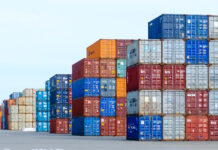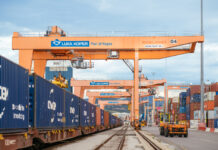
ABS Chairman and CEO Christopher J. Wiernicki conveyed the imminent implementation of a universal, global carbon tax on shipping, highlighting the emergence of alternative blue fuels incorporating carbon capture as a pivotal aspect of the maritime industry’s energy transition.
“We need to recognize that there is an intermediate step in the energy transition,” pointed out Christopher J. Wiernicki.
According to his statement, last year the conversations were focused on going from oil to a green fuel economy and today we are seeing the emergence of the blue economy that addresses carbon management, carbon capture, carbon pricing and carbon credits and offsets, as an essential stepping-stone.
“In addition, the European Union has recognized the importance of this intermediate economy with Fuel EU Maritime, and I believe you will see a universal carbon tax emerging as the IMO and the EU will synch together,” noted Christopher J. Wiernicki.
“Effective regulation under one global regulatory framework is going to be key to success in the energy transition at sea. Commercial gravity alone will not get us to Net Zero by 2050. We will need ambitious measures, both carrot and stick. Fuel EU Maritime is one example, and a carbon tax is another,” he pointed out.
Christopher J. Wiernicki believes that a unified approach is essential for the shipping industry and considers the role of IMO regulations as fundamental.
“IMO has given us an investable roadmap with outcomes and signposts along the way. It has also introduced the shift from tank to wake to well to wake, which puts a completely new perspective on fuel choices when looking at lifecycle emissions performance. Even though the IMO is being challenged by regional lawmakers, everything really starts and stops with the IMO,” he said.
Shipping’s transition is still only just beginning, he added, with much still to be decided in the coming decade of change.
“The next 10 years will determine what is desirable vs what is doable. It is way too early to declare fuel winners. The fuel technology readiness timeline will be incremental and go through a short game, a mid-game and a long game. Pace and speed will be driven by the boundary conditions of safety, fuel availability and scalability of infrastructure and, more specifically, by the cost of the electrolyzer and the cost of the carbon capture. We know these are the technologies with transformational potential, along with electrification and battery energy storage, green hydrogen and nuclear energy,” explained Christopher J. Wiernicki.




